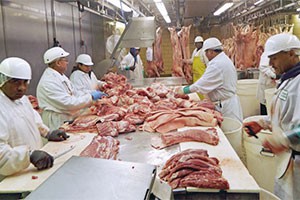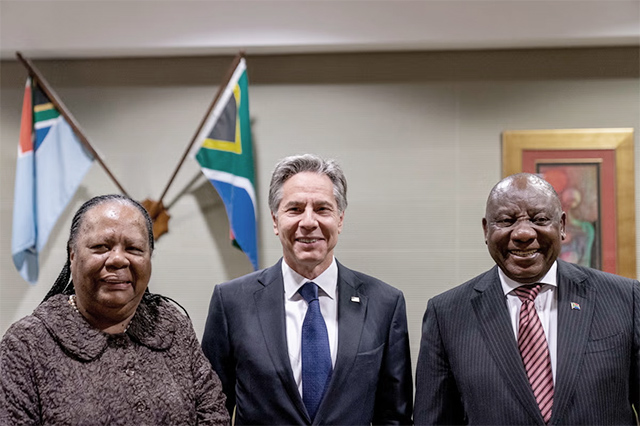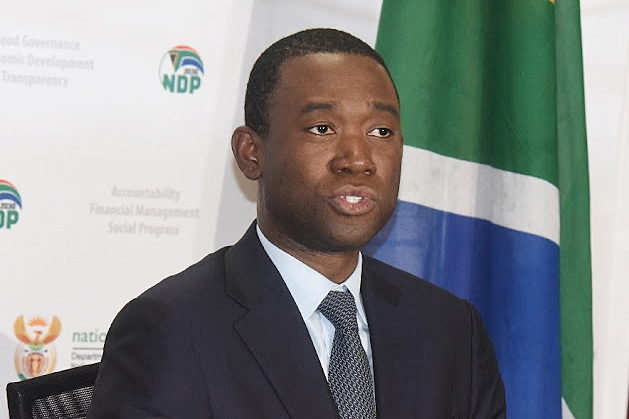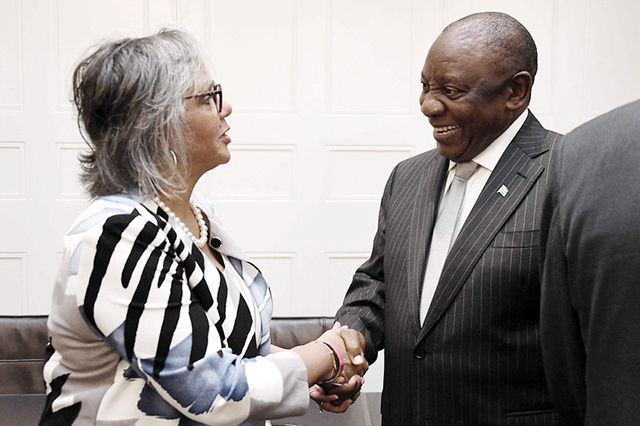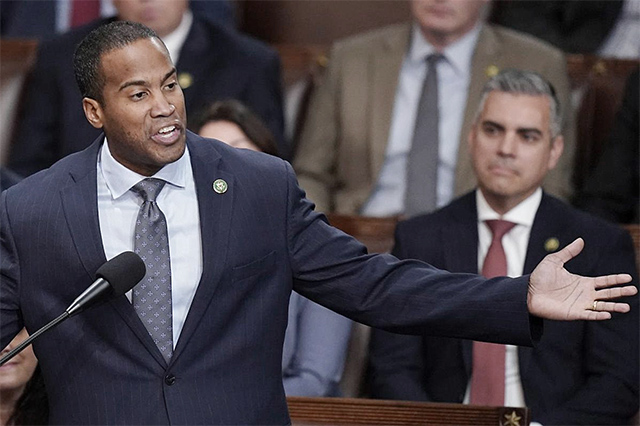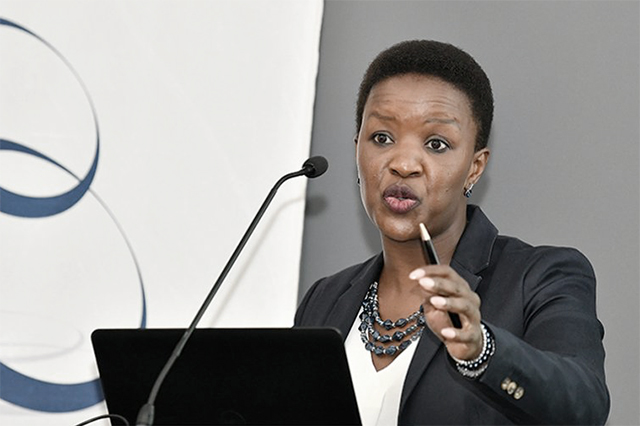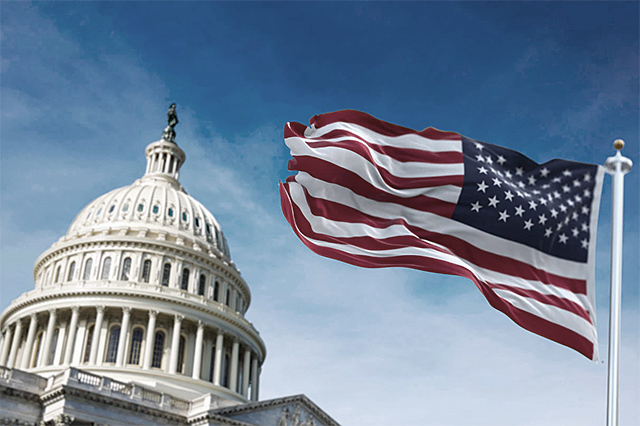Despite surviving round one, South Africa’s AGOA woes are not over, they may have just begun
The African Growth and Opportunity Act (AGOA) is a nonreciprocal trade preference programme that provides eligible sub-Saharan African countries with duty-free access for certain exports into the US market.
The law requires the US President to determine which countries can take advantage of these benefits based on whether they meet certain criteria, including progress towards the establishment of a market-based economy; rule of law; elimination of barriers to US trade and investment; economic policies to reduce poverty; efforts to combat corruption and bribery; and protection of internationally recognised worker rights.
Accordingly, the purpose of AGOA is to expand US trade and investment with sub-Saharan Africa, stimulate economic growth, and encourage sub-Saharan Africa’s economic integration.
AGOA’s greatest beneficiaries have been petroleum exporting African states such as Angola. South Africa is AGOA’s most substantial non-petroleum exporter beneficiary, especially in the automobile and perishable food industries. The textile industry in Lesotho has also gained a significant export footprint under AGOA, making the nation less reliant on migrant labour in South Africa.
Crucially, however, AGOA is not an international agreement, negotiated between various nations, and then ratified by their respective governments. It is a totally unilateral decision on the part of the US to offer new terms of trade to African nations. Therefore, improved market access into the US for products from the African continent is fully reliant on unilateral US law – and therefore dependent on which way the political headwinds are blowing in Congress whenever these dispensations come up for renewal.
That is exactly what happened at the end of last year. AGOA’s authorisation was set to expire in September 2015, and its renewal had to be approved by the US Senate and House of Representatives. US legislators debated whether to include South Africa in the list of beneficiary nations in the renewed AGOA. The two main issues centred on whether South Africa was economically too advanced to be considered a deserving beneficiary, and concerns around South Africa's compliance with AGOA's eligibility requirements. The second concern took centre stage in the political battle between the US Poultry lobby and the SA Poultry Association.
There has been a long-running complaint by US poultry exporters about South African import barriers (tariffs of up to 100%) on US poultry exports, especially bone-in chicken. South Africa has argued that the US exporters were trying to dump their chicken parts at less than the cost of production, violating international anti-dumping agreements, and justifying the imposed anti-dumping tariffs. US exporters argued that they valued their prices differently and were not technically dumping.
As AGOA is not a negotiated agreement, and is at the mercy of Congress, special interest poultry industry groups wielded the renewability of AGOA as a negotiating chip to compel South Africa to remove the tariffs. The two major opponents of an unconditional AGOA renewal were Delaware’s Democratic Senator, Chris Coons and Georgia Republican Johnny Isakson who both represent states with significant poultry industries.
AGOA was ultimately renewed by ten years at the end of 2015, and South Africa managed to claw on to its position as an AGOA beneficiary, but the US legislators made sure it knew it was skating on very thin ice. Special provisions singling out South Africa were included in the new legislation that compelled a mandatory formal review of South Africa's compliance with AGOA's eligibility provisions. The renewed AGOA also features stricter eligibility requirements and concomitant processes and reviews, as well as the possibility of targeted sanctions being implemented for non-compliance.
The ice finally cracked in January of this year, when Obama formally suspended South Africa’s AGOA preferences for agricultural exports. The legislation afforded a notice period of 60 days before the suspension took effect, allowing South Africa a last grace period to redeem itself before the 15 March deadline.
In response, South Africa agreed that an annual quota of US bone-in chicken could be imported into the country without paying the anti-dumping duties normally applicable on these goods. Consequently, at the beginning of March US chicken imports hit South African store shelves for the first time in 15 years.
This remedial effort seems to have borne fruit. On the awaited date of 15 March, President Obama announced that South Africa had met the benchmarks set to allow the import and sale of US poultry in South Africa and would not be suspended from any AGOA preferential treatment.
However, despite this reprieve, South Africa is far from being on terra firma as far as AGOA is concerned.
The renewed AGOA was amended to allow for increased flexibility in dealing with beneficiary states whose eligibility is in question. In addition to an annual review and request for public comment on whether the beneficiary complies with the eligibility criteria, the US president may now initiate “out-of-cycle” assessments on 60 day’s warning at any stage.
South Africa may have survived the out-of-cycle assessment regarding its poultry and meat imports, but its position on other outstanding issues is likely to be interrogated in the mandatory annual reviews, or even trigger further out-of-cycle assessments, and ultimately scuttle AGOA privileges. For example, if South Africa pursues its intention of restricting foreign commercial interest in the private security industry, or reforms its intellectual property laws in line with the proposed National Policy on Intellectual Property Bill, it is almost certain to come under further review.
All this further illustrates why it is imperative that the Southern African Customs Union (SACU) and South Africa in particular, need to finally conclude a reciprocal trade agreement with the US instead of relying on unilateral treaties such as AGOA. South Africa needs assurance that its access to the US market is not perpetually at risk, and that any trade disagreements will be dealt with within the framework of a contractual arrangement, and resolved through the WTO rules and procedures, as opposed to the raw political hard-balling that we have witnessed in the AGOA saga.
The good news is that the renewed and amended AGOA emphasises the negotiation of trade and investment framework agreements with African countries. It requires the Office of the US Trade Representative to report on plans for negotiating mutually beneficial free trade agreements within a year of AGOA being reauthorised, and to notify US Congress of any African country that has expressed an interest in such agreements. It also provides for the evaluation of “the viability and progress” of interested African countries toward entering into such agreements.
Hopefully this will be the impetus that South Africa, SACU and the US need to get back around the negotiating table and concluded reciprocal, mutually beneficial trade agreements which are now more crucial than ever before.
Virusha Subban, partner specialising in customs, excise and international trade and Yonatan Sher, candidate attorney at Bowman Gilfillan Africa Group.


